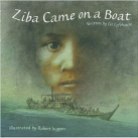This post builds on the previous. I know there’s a lot going on. COVID-19, systemic and systematic racism, poverty, so much more, you name it. I know. There is always more going on than many of us can or choose to acknowledge or focus on. Many of us have the privilege of that choice. Many more do not.
So, why add refugees to the collective maelstrom? Because they are already there. Because resistance to, misconceptions of and attacks on refugees have been as persistent a problem as racial, ethnic, religious, gender and sex, and related forms of persecution. Because all of the above issues and others, while being their own unique challenges, are also interconnected. The biggest underlying challenge in each case is a lack of empathy and willful ignorance and, in no small amount, fear. Each crisis merits attention as well as individual and collective efforts to address them and to find sustainable solutions in whatever ways we can.
We can start by opening our hearts and minds. Here are some books you can read to begin opening yours and those of your children. Please read my previous post, World Refugee Day, if you haven’t, for more context.
- 11 Books to Teach Students About the Refugee Experience from We Are Teachers
- The Refugee Experience: Books for Children from Colorín Colorado
- Books to Help Kids Understand What It’s Like to Be a Refugee from Brightly
- 8 Simple Acts from Counterpoints’ Refugee Week, including some actions everyone can take and folks who live in the United Kingdom can take
- Fiction resources from Counterpoints’ Refugee Week
Also, Lantana Publishing has a number of wonderful books on the theme of diversity and inclusion, including these two that tell the stories of children enduring and escaping conflict:
You can watch and listen to their wonderful books being read aloud by the authors here.








